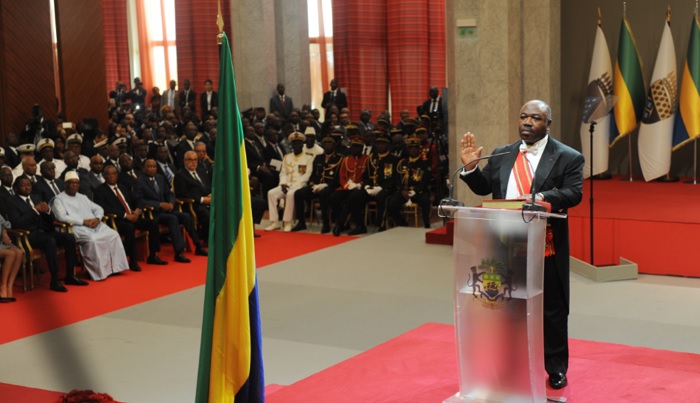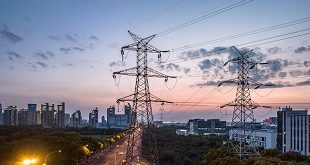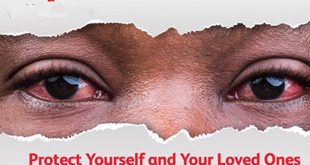
Libreville, Gabon | AFP |
Ali Bongo was sworn back in as Gabon’s president Tuesday, calling for unity after a disputed election win that sparked deadly unrest and revealed deep divisions in the oil-rich country.
He pledged to ensure “equal opportunities” for all and to push through a 2025 programme that would deliver a flourishing economy.
“This is the path that will guide the government which I will name in a few days,” Bongo vowed.
Government spokesman Alain-Claude Bilie-By-Nze said Bongo wanted to install “a unity government by this week or the start of next week”.
Cannons were fired during the ceremony in the seafront presidential palace in Libreville, as fears of fresh violence resurfaced.
“I pledge to devote all my efforts for the good of the Gabonese people and to ensure their well-being… and respect and defend the constitution and the rule of law,” Bongo said during the event.
“Our country is going through a worrying period in its history,” he added.
A handful of African leaders attended including the presidents of Mali, Niger, Togo and Sao Tome, as well as the prime ministers of Chad, Senegal, the Central African Republic and Morocco.
But most regional heavyweights stayed away.
Bongo’s second mandate has received a cool reception from the African Union and the United Nations, while the European Union voiced regret that the count had not been transparent.
But Bongo on Tuesday said the “democratic process has been recognised by everybody, including foreign observers”.
‘The delicate period’
“I want to reassure our international partners, especially our traditional ones, that we will spare no effort to maintain good relations and friendship between our people,” he said.
Bongo’s wafer-thin victory in the August 27 vote was confirmed on Saturday by the Constitutional Court, which dismissed opposition claims of vote fraud.
Defeated opposition contender Jean Ping, 73, lashed the court’s ruling as a miscarriage of justice and declared himself “president elect”.
He has so far not responded to Bongo’s overtures for a dialogue.
A career diplomat and a former top official at the African Union, Ping had filed a legal challenge after Bongo was declared the winner by a mere 6,000 votes.
Violence initially erupted on August 31 after Bongo was first declared the winner. Demonstrators set parliament ablaze and clashed with police, who made a thousand arrests.
Opposition figures say more than 50 people were killed. The government has given a toll of three dead.
Ping had asked for a recount in Haut-Ogooue province, where 95 percent of voters in the Bongo family stronghold were reported to have cast their ballots for the president on a turnout of more than 99 percent.
In its final tally, the court ruled Bongo had won 50.66 percent of the vote and Ping 47.24 percent, extending Bongo’s lead to 11,000 votes over his opponent.
The EU’s electoral observer mission said Sunday it “regretted” that the court “had been unable to satisfactorily rectify anomalies observed during the count”.
‘Not lifted all doubts’
Former colonial power France said that the verdict clearing Bongo’s victory “has not lifted all the doubts” about the process.
Bongo’s critics threw up a verbal barrage of derision on social media as he was sworn in on Tuesday.
“I too proclaim myself president of the Republic of Gabon and I take the oath of office,” said a Gabonese with the Twitter handle of BongoIsKilling.
“Our fledgling democracy has shown once more that I have the unique right to wipe my bottom with the constitution.”
Bongo’s family has exercised a long grip on power.
Ali Bongo took over from his father Omar Bongo, who ruled for 41 years until his death in 2009.
Gabon has large oil, mineral and tropical timber resources, and its per-capita national income is four times greater than that of most sub-Saharan nations.
But about a third of its population of 1.8 million still live below the poverty line — the result, say specialists, of inequality, poor governance and corruption.
 The Independent Uganda: You get the Truth we Pay the Price
The Independent Uganda: You get the Truth we Pay the Price


